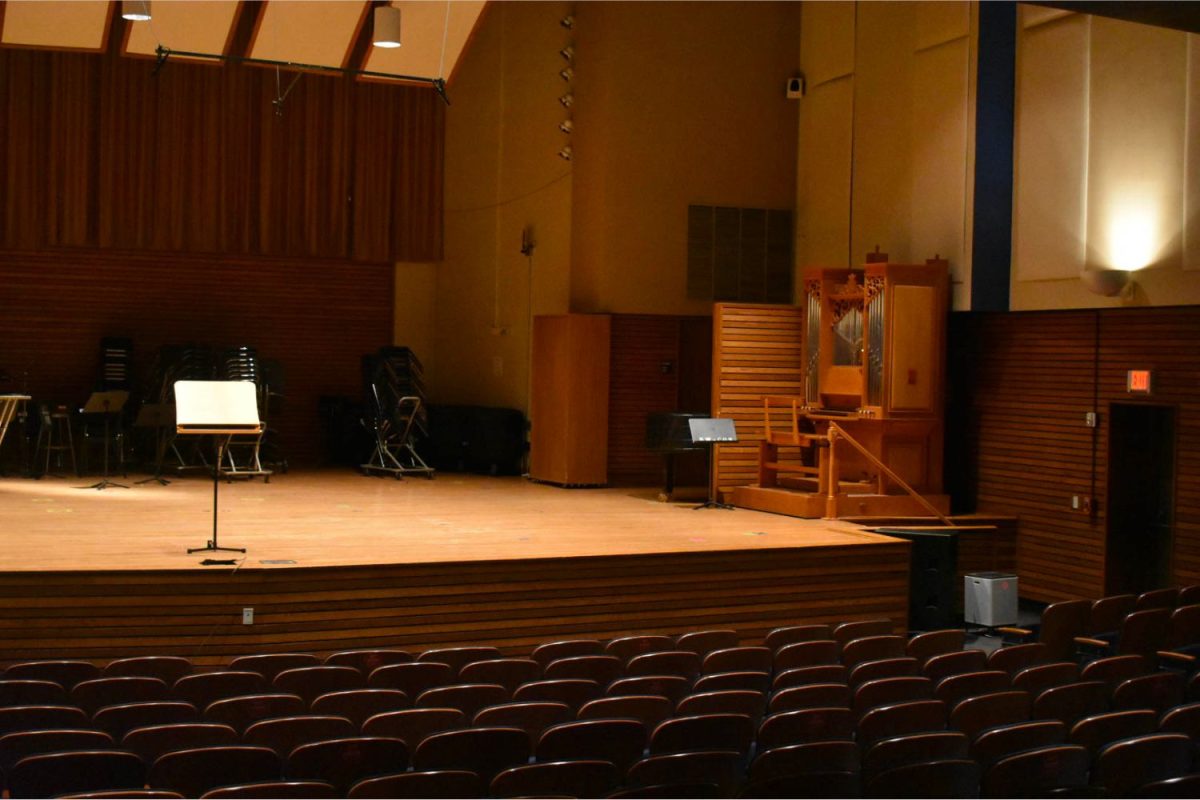The Ninth Annual Arts Innovation Summit was held on Oct. 17 in the Gamble Auditorium. This summit discussed “key findings” from the Greater Cleveland Music census. One essential figure it will focus on is initiating formal music commissions and tax breaks for small venues.
Dr. Sean Murphy, associate professor of arts management and entrepreneurship, is the producer of the Arts Innovation Summit. He said that after the results from the 3,000 people census, some “political and community” initiatives have begun based on what the census has revealed.
“A lot of these venues are for profit. They are not tax-exempt. They do not get grants. One of the big initiatives they are putting out is that they want to try to get a tax rebate on alcohol sales at these little, small venues, so that they could get some economic relief to help offset the cost of operating,” Murphy said. “They have to, obviously, keep the lights on…They’re looking for ways to get economic support.”
During the Innovation Summit, there was a panel discussion between Cindy Barber (co-owner of The Beachland Ballroom & Tavern), Kathy Blackman (owner of The Grog Shop), Gabe Pollock (director of performing arts, The Cleveland Museum of Art), Sean Watterson (co-owner of Happy Dog), and moderator, Troy Smith, who is an entertainment reporter with Axios Cleveland.
According to census results, out of the 2,768 respondents within the economic composition, the majority are performers. The average household income was $82,000, and 65% of the performers also work outside of music.
“If the venues could get more financial support, they could probably pay the bands more. If the bands can get more money, fewer performers can probably work outside of music,” stated Murphy. “The interconnectivity of our whole arts ecosystem is very much like a big Jenga, in which you move one piece, and the whole figure is affected by it.”
Murphy said a few big changes in the arts economy have been the results of the pandemic and the industry consolidation of bigger venues, such as the ownership of TicketMaster by Live Nation, which they began to increase their midsize rooms. He also said that with the help of midsized rooms, artists such as Chappel Roan had gotten the support they needed to branch out from smaller venues.
“Even though it seems like she got popular overnight, she was very much supported by these midsized rooms that she started in,” Murphy said. “…small venues see that they can help an artist get to where they want to be in their career, but then they also want to constantly try to find the next artist.”
One aspect Murphey hopes the audience can take away is the advantage we as a community have over the ownership of our arts economy.
“Whether you are going to work in the arts or you’re just going to consume the arts, the survey says 82% of people plan to remain in Cleveland who are in the arts economy,” Murphy said. “The arts economy of Cleveland is very much ours, either if we’re working in it or we’re patronizing it by buying tickets and going to shows.”





























